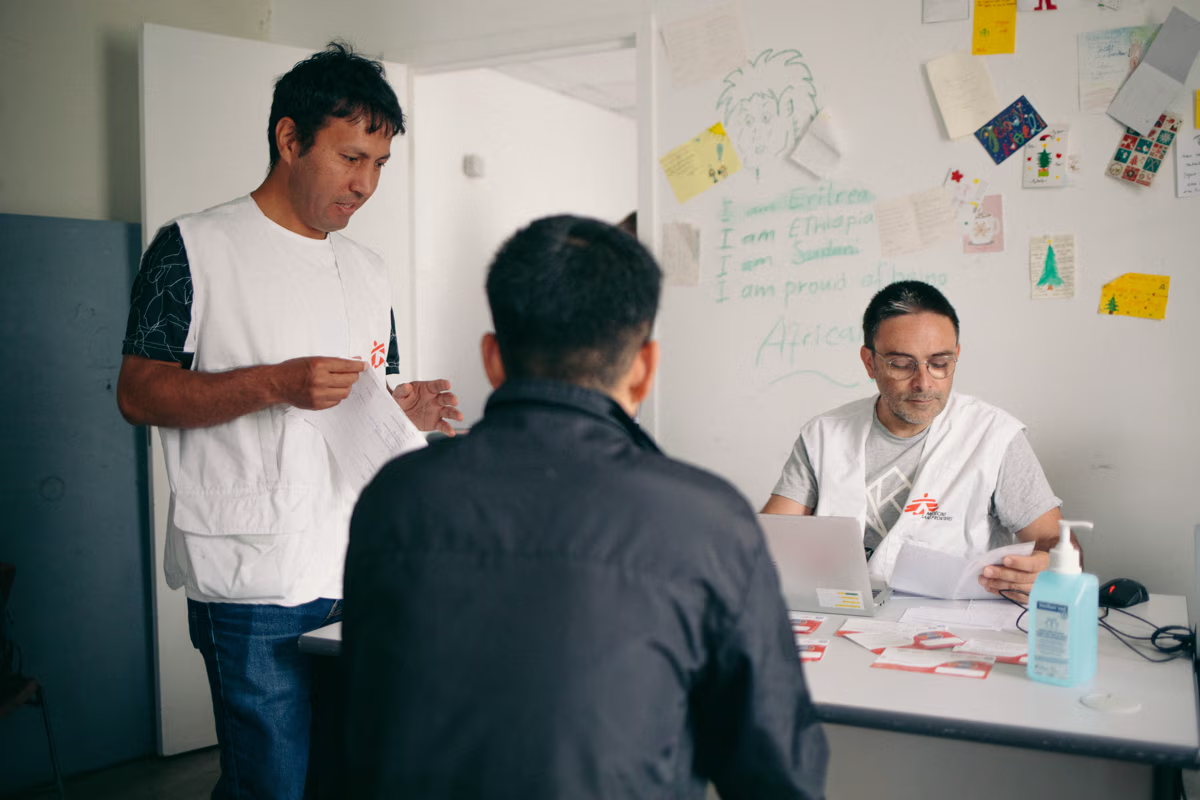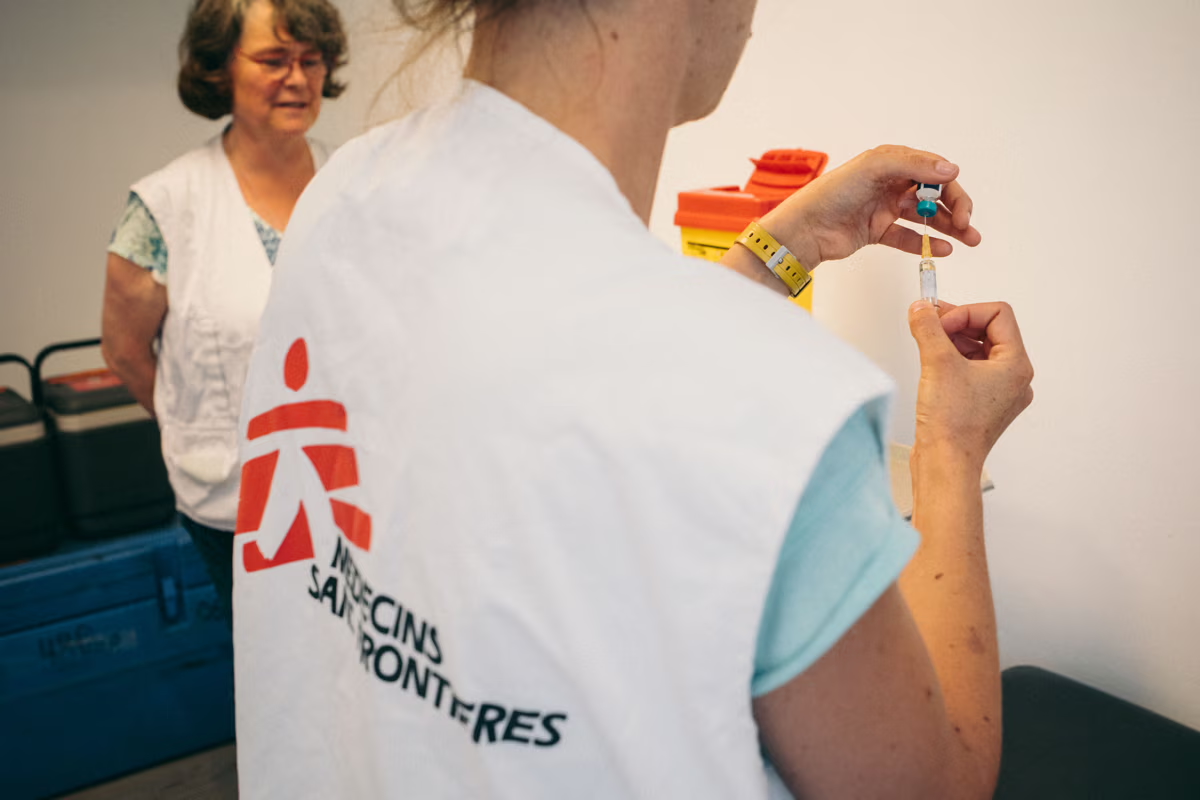Doctors Without Borders (MSF) has called on the Federal Government to step up its efforts to administer routine vaccines to asylum seekers to prevent diseases from rearing their heads.
Despite multiple court convictions, Belgium has for almost two years failed to provide shelter and medical assistance, including administering mandatory vaccinations to asylum seekers through its Migration Agency Fedasil. For this reason, MSF established its own medical point for refugees (RMP) in 2022, where physically and mentally vulnerable people could receive help.
Here, MSF treated and followed up more than 2,000 people in the winter of 2022, when it detected cases of diphtheria. In May 2023, the Belgian Red Cross which took over the centre, detected measles in people who were staying in an emergency reception centre. For this reason, MSF itself already launched two vaccination campaigns.
"We vaccinated more than 400 people in Brussels homeless centres, in some squats and in the Brussels humanitarian hub for asylum seekers for whom no shelter is available in Fedasil centres in December, and almost 400 more in June," the organisation noted.
Actions to prevent the re-emergence of diseases
However, the non-profit organisation has now argued that it is up to the Federal Government to "scale up such catch-up vaccinations against these preventable diseases on a large scale," in line with national guidelines." MSF added that a special focus should be put on children. "This should prevent diseases such as measles, diphtheria and polio from gaining ground in Belgium, and is necessary to protect all population groups."
It stressed that the government should provide long-term services, including medical screening, vaccinations, psychological care and other special care, in the RMP for asylum seekers. MSF also called for better cooperation with the emergency centres where a large number of them are currently housed due to the continued failure to provide them with shelter through official networks.
As the number of asylum seekers in Belgium is expected to peak again in September and October, as was the case last year, and the number of sheltered places run by Fedasil is not increasing as quickly as required. Aid organisations on the ground are expecting another difficult period which could once again see families and children live on the streets.
"MSF calls for special vigilance and specific actions to prevent the re-emergence of these diseases in the country," it concluded.


